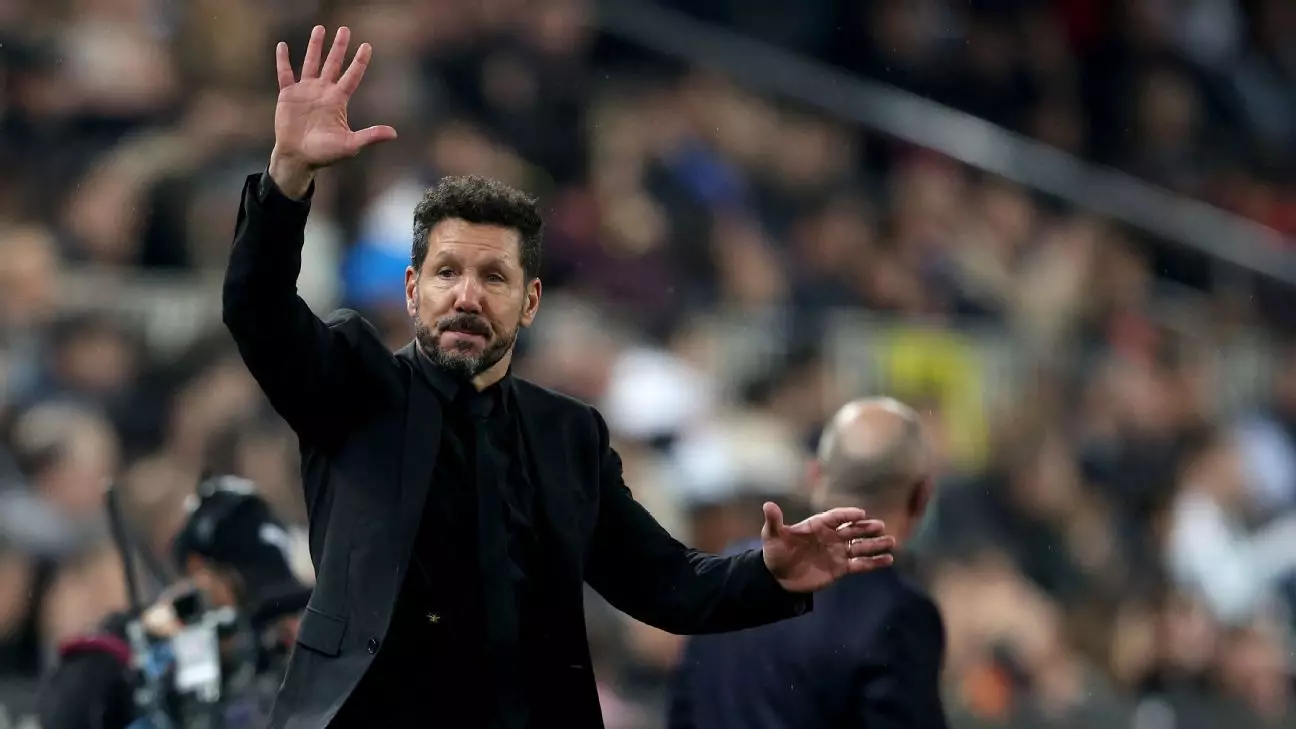In the realm of football, the nuances of penalty decisions, particularly those regarding handballs, have become a source of confusion and frustration for players, coaches, and fans alike. Recent comments from Atlético Madrid’s head coach Diego Simeone highlight this ongoing dilemma. Following Atlético’s convincing 3-0 victory over Valencia, Simeone expressed his bewilderment concerning the incident that could have resulted in a penalty for the home team. The scenario unfolded in the second half when a purposeful effort from Valencia’s Umar Sadiq collided with the arm of defender Javi Galán. Despite the evident nature of the incident, the officials opted not to award a penalty. This discrepancy raises significant questions about the consistency and clarity of officiating in LaLiga.
Comparisons often arise when examining officiating decisions across different competitions, and Simeone drew attention to a particularly controversial instance that occurred during the Euro 2024 quarterfinal match between Spain and Germany. In that match, a shot by Jamal Musiala struck Marc Cucurella’s arm, yet no penalty was awarded. Subsequent reviews by UEFA acknowledged the error, further complicating the public’s understanding of handball regulations. This inconsistency suggests that even at higher levels of governance in football, the interpretation of the rules can fluctuate dramatically, leaving players perplexed by the standards applied from one match to another.
The Impact of Decision-Making
Interestingly, the ripple effects of such officiating decisions extend beyond the current match. They influence team morale, fan sentiments, and discussions around the integrity of the sporting environment. Valencia’s player Iván Jaime echoed Simeone’s sentiments, labeling the non-call as a clear handball that should have changed the course of the game. These opinions reflect a broader critique of how officiating decisions can skew the fairness of competition, especially when they are perceived as unjust or inconsistent.
Furthermore, the controversy surrounding handball decisions has drawn attention to the pressure faced by referees in making split-second calls that can have monumental repercussions for a team’s standings, especially given Atlético’s positioning in the LaLiga title race, just a point shy of leaders Barcelona. This underscores a crucial point about the human aspect of officiating in sports: while technology has evolved to assist referees, the interpretation of rules remains intrinsically subjective.
As Atlético continues to strive for success in LaLiga, the pressing need for a clearer understanding of handball laws and their implementation has never been more critical. Observers and fans alike are left to wonder how governing bodies can ensure consistent decisions that uphold the integrity of the game. For now, players like Simeone and Jaime will advocate for clarity and fairness, hoping that future officiating creates a level playing field—one free from the ongoing confusion that has characterized recent matches. In a sport so beloved globally, the stakes are high, and it is imperative that clarity prevails over ambiguity.

